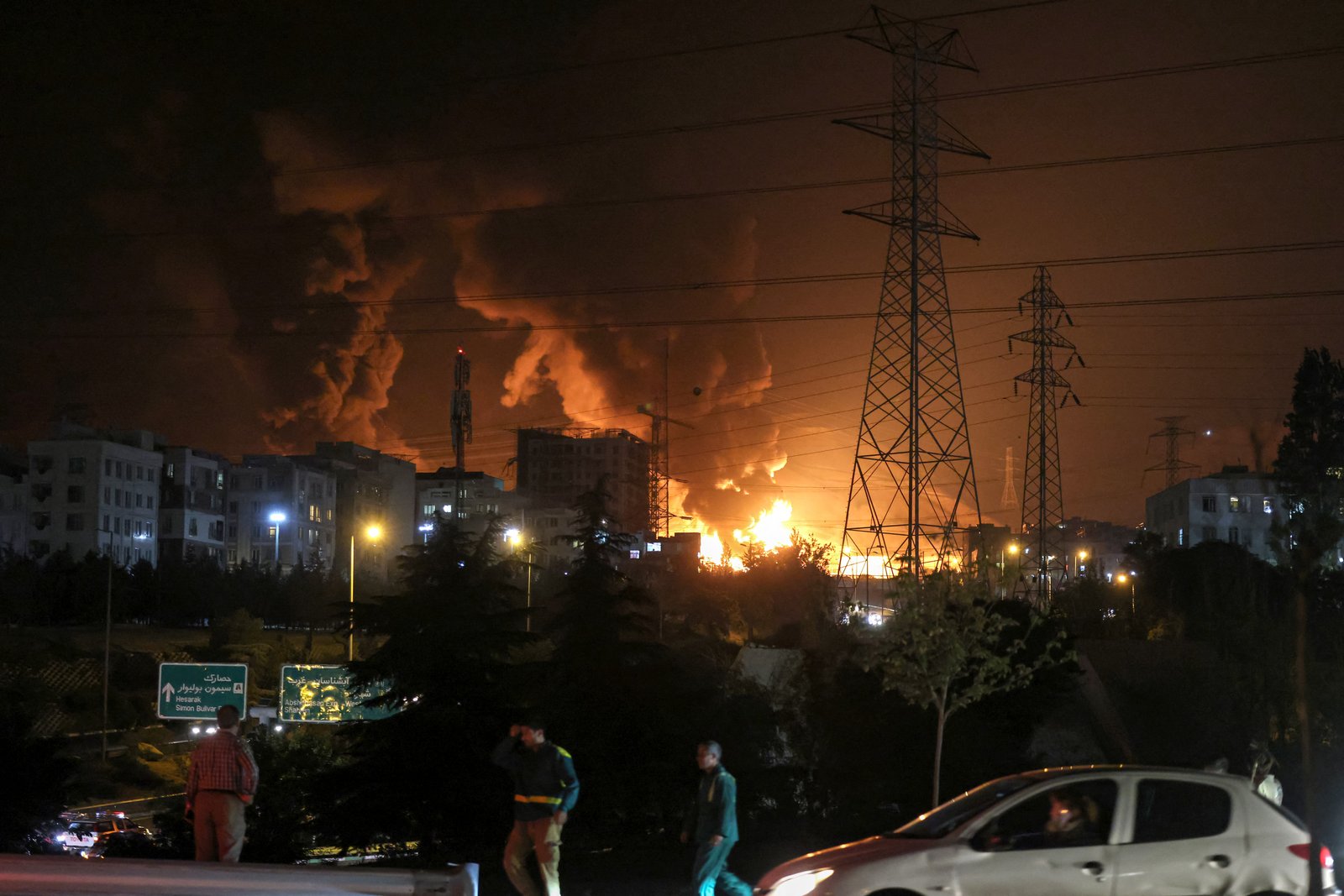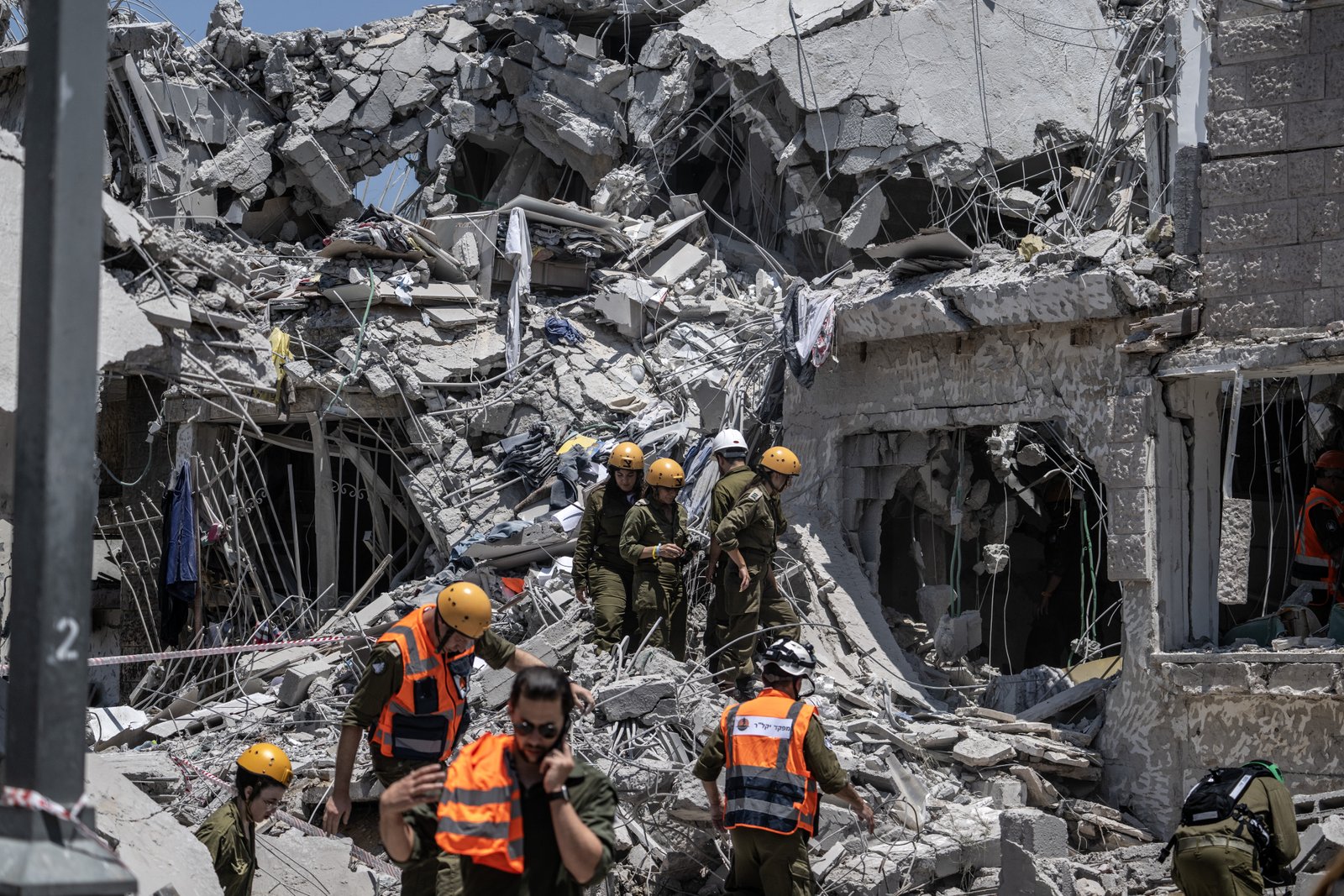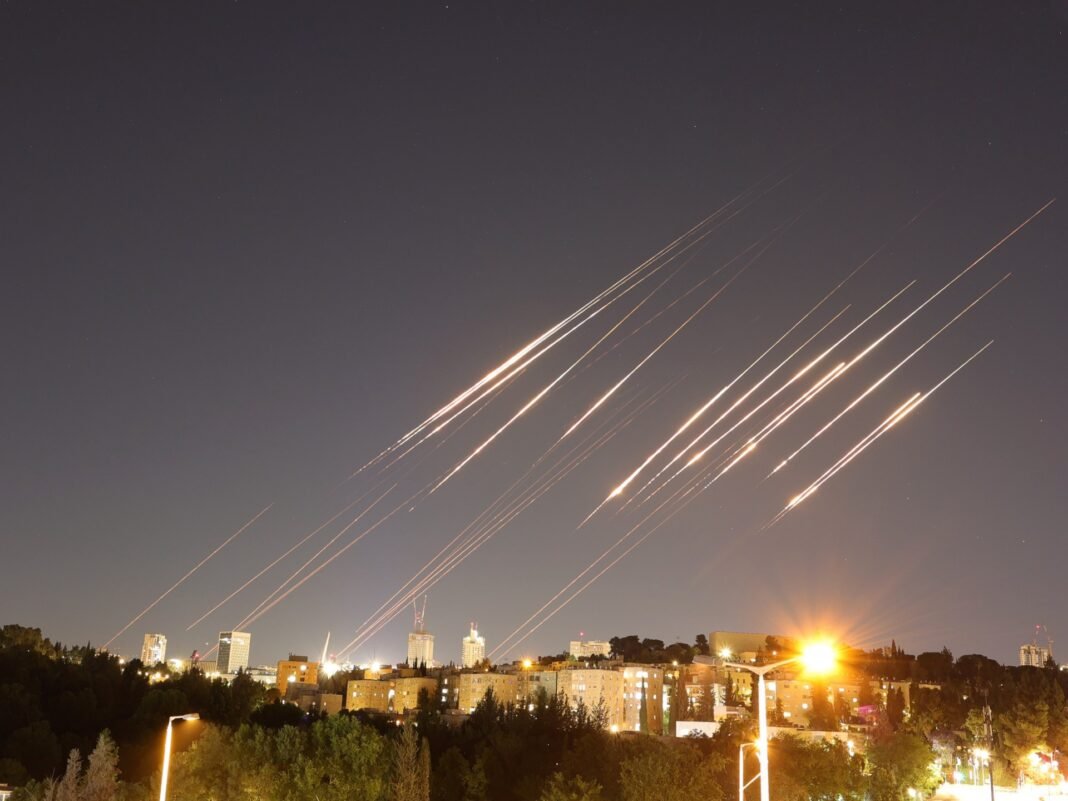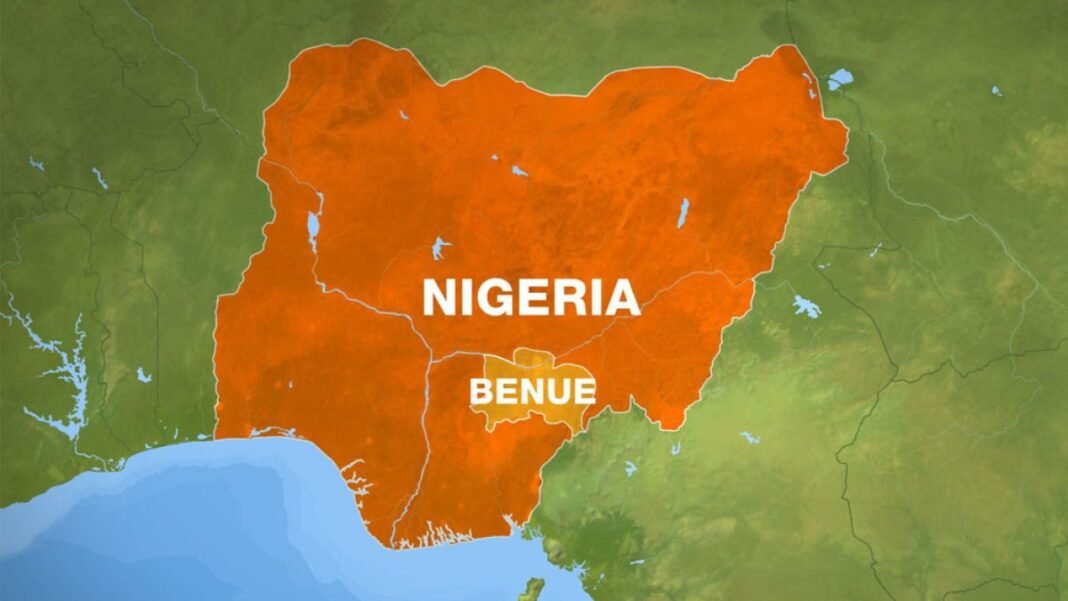Rising Tensions Between Israel and Iran Spark Global Alarm
The conflict between Israel and Iran has escalated sharply, with both countries exchanging intense missile attacks over several days. This surge in hostilities has heightened fears of a prolonged and far-reaching confrontation.
Missile attacks Target Northern Israeli cities
During the early hours from Saturday into Sunday, Iranian missiles struck multiple locations in northern Israel, causing at least three deaths and injuring 13 others. The port city of Haifa-home to vital energy infrastructure-was among the hardest hit. Analysts interpret these strikes as Tehran’s response to recent Israeli air raids on key Iranian energy sites near Bushehr and Abadan.
Social media footage showed missiles streaking across northern Israeli skies while sirens blared throughout Haifa and the Western Galilee region. Although many Israelis support military action against iran, skepticism remains about weather these attacks will halt Iran’s nuclear program or lead to significant political change.
בשעה זו: אזעקות באזור חיפה והגליל המערבי
Translation: At this hour: Sirens in the Haifa area and Western Galilee
A New Phase: Strikes on Iranian Energy Infrastructure
The conflict took a strategic turn as Israel expanded its targets beyond military installations to include critical civilian economic assets within Iran. A notable strike hit the south Pars gas field-one of the world’s largest natural gas reserves-igniting a fire that officials later claimed was contained, though its full consequences remain unclear.
This attack threatens an already fragile Iranian energy sector burdened by sanctions and internal challenges. Energy expert farhad Azimi warned that damage to South Pars could severely disrupt domestic fuel supplies and also international exports, deepening economic instability nationwide.
The Shahran Oil Depot Incident Near Tehran
Further Israeli strikes reportedly caused fires at Tehran’s Shahran oil depot northwest of the capital city. Emergency teams scrambled to control flames amid reports of explosions triggered by activated Iranian air defenses following these assaults.

Civilian Casualties Rise Amid Reciprocal Missile Barrages
The human cost continues mounting on both sides as residential neighborhoods suffer collateral damage amid ongoing exchanges. Reports from Tehran indicate over 80 fatalities-including women and children-and more than 320 injuries resulting from Israeli bombardments targeting military sites alongside civilian areas.
Iran responded with missile salvos that partially penetrated Israel’s advanced defense systems but still inflicted casualties estimated at four dead with over 200 wounded since Friday night alone.
هماکنون | #پالایشگاه_نفت #تهران در شهر ری
Translation: Right now | #OilRefinery #tehran in Rey city
Diplomatic Talks Collapse Amid Rising Violence
Nuclear negotiations planned between Washington and Tehran in Oman were abruptly canceled due to escalating hostilities. Iranian officials dismissed talks as futile while condemning what they described as “barbaric” ongoing Israeli attacks-a progress signaling bleak prospects for peaceful resolution anytime soon.
A Divided Public Opinion Within Israel Over Military Actions
Inside Israel, public sentiment reveals complexity beneath official endorsements for aggressive measures against Iran. Political commentator Lior Ben-David highlights growing unease among citizens questioning whether current operations will achieve meaningful outcomes or simply prolong conflict.
“Many are preparing independently,” ben-David noted.
“Confidence in government protection is waning.”

The Wider Regional Consequences Stir Global Concern
This intensifying confrontation has prompted urgent warnings from international leaders worried about destabilization spreading across the Middle East-and beyond.
Iran threatened potential closure of passage through the Strait of Hormuz if fighting escalates further-a critical chokepoint through which nearly 20% of global petroleum shipments transit daily.
- Iran also warned foreign military bases supporting Israel could become targets;
- This threat persists despite diminished retaliatory capacity due to weakened allies like Hamas after prolonged conflicts;
- Diplomatic efforts continue discreetly even while public rhetoric hardens;
- Tensions risk triggering refugee flows impacting neighboring nations such as Turkey;
- A fragile balance exists between calls for negotiation versus continued escalation on all fronts.
Divergent Diplomatic Exchanges Reflect Complex Realities
Tensions have sparked high-level communications including Turkish president Recep Tayyip Erdogan holding separate talks with Saudi Crown Prince Mohammed bin Salman and Iranian President Masoud Pezeshkian.
Erdogan sharply criticized Prime Minister Netanyahu’s policies while urging restraint:
“Unchecked aggression poses our greatest threat,” he said,
“and only dialog can peacefully resolve nuclear disputes.”
“Netanyahu is diverting attention by igniting regional conflicts instead of addressing humanitarian crises elsewhere,” Erdogan remarked regarding Gaza tensions during his call for diplomatic solutions rather than war escalation.”
Powers Monitor Developments Amid Uncertain Outlooks
- US officials reaffirmed support for Israel’s right to self-defense but cautioned against unchecked escalation;
- Russian President Vladimir Putin expressed serious concern urging immediate ceasefire while leaving open possibilities for renewed nuclear diplomacy;
- Both sides remain watchful awaiting next moves amid volatile conditions shaping regional security dynamics profoundly .





